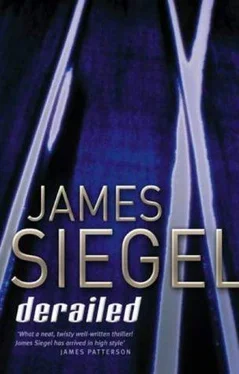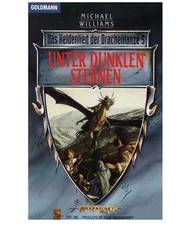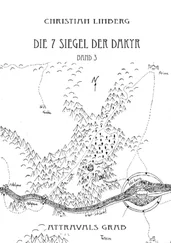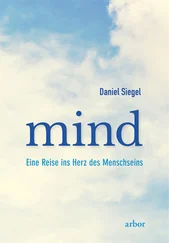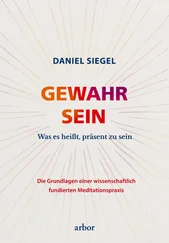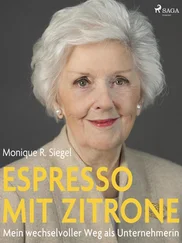I reached into my pocket and pulled out Vasquez’s business card. I turned it over.
Twenty-two right.
Thirty-seven left.
Twelve right.
I moved the tiny cylinders. It clicked open.
In the briefcase was the $110,000 of Anna’s money. And hundreds of thousands more.
Things happened for a reason, Deanna always believed. And now, finally, I agreed with her.
We talked.
And talked.
Straight through the night.
I told Deanna what was on my mind.
At first she was incredulous; she made me repeat it because she didn’t think she’d heard it right.
“You’re not serious, Charles?”
“As far as anyone knows, Deanna, I’m dead, understand? I think I should stay that way.”
I told her everything I hadn’t before. The T&D Music House. The investigation they were conducting at my company. The charges that would no doubt soon be filed.
Deanna still resisted. She put up coffee; we huddled in the basement so we wouldn’t wake Anna.
We imagined the future. But we imagined it two ways.
We imagined me walking down to the police station in the morning and giving myself up. We imagined it first that way. Giving myself up to the police and getting a lawyer and going to trial. And possibly losing. Conspiracy to commit murder, with exhibit A being an audiotape where a jury of my peers would hear me asking Winston to more or less go kill someone for me. A tough thing to explain your way out of. So I might end up looking at fifteen years, possibly ten with time off for good behavior, even with that separate indictment hanging over my head for embezzlement.
Ten or fifteen years. Not the longest time in the world. Maybe even doable time. Maybe. Only there was another sentence to consider here.
Anna had been handed a sentence, too. An uncertain sentence, true, a reprieve from the governor always a possibility. But not likely. Probably, more than possibly, a death sentence. Which meant that when I’d finished serving my ten or fifteen years, when I came out to find my family waiting for me outside the walls of Attica — it would be diminished by one. It would be just the two of us. And maybe sooner rather than later. Because there would be other nights where Anna would be found unconscious and shaking; other injections given with a trembling hand to my comatose daughter. Keeping Anna alive was a two-person job — it had always been a two-person job.
And since we were both sitting there and imagining this kind of future, I imagined all of it. Getting the news in prison, by letter, maybe: “We regret to inform you that your daughter, Anna, passed away yesterday.” Begging for permission to attend her funeral. Being turned down. Having to see Deanna’s ravaged face through the plastic partition the next time she came to visit me.
We imagined that future first.
Then we imagined another. A different kind of future.
A future someplace else. With other names. A future that would include both of us there to share in it.
With $450,000 to support it. To support Anna.
That’s how much was in the briefcase. One hundred and ten thousand dollars of Anna’s Fund and $340,000 from the other men they’d taken to the cleaners.
Which was another reason to consider this second future. That briefcase. Someone might come looking for it.
There were times that night it seemed like we were talking about someone else. That it couldn’t be our family we were discussing, that it had to be someone else’s. A more or less ordinary middle-class family suddenly becoming a different ordinary middle-class family. Was that possible? Sometimes things like that happened, didn’t they? Entire families whisked off into witness protection programs, new identities, new lives. This was different, of course.
We weren’t going to be hidden by the government. We were going to be hiding from the government. From the New York City Police Department.
Hiding from everyone from now on.
In the end, it came down to a simple question. It came down to Anna. What was her best chance? What promised a longer future for her? With me or without me? It was possible I could beat the charges. After all, even with adultery thrown into the mix, I might have sympathy on my side—and a clever lawyer, too. I might beat the charges, but it was only fifty-fifty at best.
Could we take the chance? Could we roll the dice?
The reason to do it was Anna.
The reason not to do it was Anna.
I would have to disappear first — tonight. And Deanna? She might have to wait a long time to join me. Six months, maybe even a year. And all during that time, Anna couldn’t know — we both realized that. She might say something, give me away. For an entire year or so, Anna would have to believe that her father was dead.
We went round and round, back and forth.
Maybe it was simple fatigue that finally beat us down. We kept hammering away at the rational and logical until they both finally switched sides.
By five in the morning, the most logical, the most reasonable thing in the world seemed to be to disappear off the face of the earth.
I never turned myself in.
I died.
FORTY-SIX
I left that night.
But before I walked out, before I held Deanna for what seemed like twenty minutes with neither of us saying a word, I tiptoed upstairs and looked in on my daughter.
She was fast asleep, with one arm thrown over her face as if she didn’t wish to see something. Bad dream, maybe. I whispered good-bye to her.
I didn’t have a destination.
My destination was anywhere far from there.
I took a Greyhound bus at 6:00 in the morning that was headed to Chicago. It seemed as good a place as any.
I sat next to a thin and restless prelaw student who was on his way back to Northwestern.
“Mike,” he said to me, and put his hand out.
“Lawrence,” I said. “You can call me Larry.” It was the first time I’d really used my new name — that I’d said it out loud. It felt odd, like seeing myself with a beard. I would have to get used to it.
Mike was a sports junkie; he wanted to be a players agent when he graduated, he told me. I was going to tell him that maybe I could help him, that I knew one or two agents, having used athletes in commercials for years, but I stopped myself. From now on, I wasn’t in advertising. From now on, I'd never been in advertising. Which got me thinking about what I did do if someone asked. And what I would do whenever I got to where I was going.
Except for a teaching degree I’d gotten from Queens College — not because I particularly wanted to be a teacher, but because I didn’t know what else I was going to do back then — advertising had been it. How was I going to make a living now?
I fell asleep a few times on the way to Chicago. And dreamed. About Winston. He was sitting with me in my old office, and we were talking about the Yankees’ chances in the coming season. Then Winston heard a dog barking — he got up and left. When I woke, Mike was looking at me oddly, and I wondered if I’d talked in my sleep. But Mike just smiled and offered me half of his tunafish sandwich.
When we got to Chicago, I shook hands with him and wished him luck.
“You too,” he said, and I thought that I would probably need it.
I found an apartment over by the lake.
I’d brought enough money to tide me over for as long as it might take. More than enough, anyway, for one month’s security and one month’s rent.
The neighborhood was largely Ukrainian.
Neighbors sat on brown stoops when the weather was nice. Kids rode bicycles in the street and played stickball. One month after I moved in, they held a block party. A bald, sturdy-looking Ukrainian man knocked on my door and asked me if I wanted to chip in.
Читать дальше
